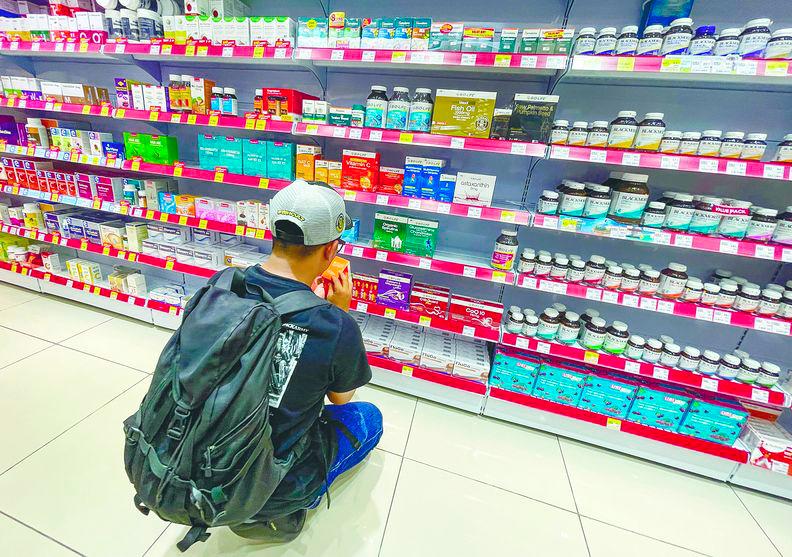PETALING JAYA: A pharmacist and a public health expert have warned the public to beware of supplements sold in pharmacies and online that are unsafe to consume due to side effects and misinformation.
Nur Aimah Sakinah Kairulanuar, who has been a practising pharmacist for 13 years, said she has seen many supplements with misinformation on their labels.
“Not all supplements found on pharmacy shelves or sold online are safe for consumption. Many of them grossly misrepresent the efficacy of the product and mislead consumers into purchasing them.”
Nur Aimah said most of the supplements for diet, nutrition and meals are allowed for sale based purely on laboratory test results provided by manufacturers.
“The Health Ministry issues a notification number based on the owner’s laboratory tests, which allows the sale.
“While possessing the necessary paperwork might give the impression that the product is safe for consumption, it does not ensure this or the efficacy of the products.
“Only if there are complaints will the ministry independently test the product and ban it if necessary.”
For instance, Nur Aimah said, while diet cookies are now being sold in pharmacies, not all of them are suitable for the masses due to individual metabolism, dietary preferences, medical conditions and lifestyle.
She said despite their marketing claims of being low-calorie alternatives and appetite suppressants, many of them contain high levels of sugar and refined carbohydrates, which cause weight gain and other health risks.
“Some companies and product owners prioritise profits over consumer health. In highly competitive markets, some businesses may focus on short-term profits rather than having long-term relationships with customers.”
She said merely relying on the presence of official stamps and documentation is insufficient to ensure the product’s safety or suitability as a health product.
Universiti Kebangsaan Malaysia Public Health Medicine specialist Prof Dr Sharifa Ezat Wan Puteh said interest in alternative medicine such as herbal remedies, is growing in Malaysia.
“When pharmaceutical products fall short, an increasing number of distressed patients seek solace in alternative medicine.
“However, unlike prescription medications that undergo rigorous testing and regulatory scrutiny before hitting global markets, dietary supplements are not subject to the same stringent standards.
“Moreover, supplements should not be equated with candy. Supplements are semi-medical products and like any medication, they come with potential side effects.”
Sharifa Ezat said herbal supplements and other products labelled as “natural” and “low calorie” are incredibly popular as the public often assumes they are healthier due to their natural origins.
“Just because something is ‘natural’ does not mean it is safe. Some herbal supplements can cause serious health issues if taken in combination with prescription drugs or if one has certain health issues.”
Giving an example, she said St John’s Wort, which is taken to overcome depression, will make consumers sensitive to sunlight, especially if they consume it in excess.
“Other side effects can include trouble sleeping, feeling anxious, having a dry mouth and headaches, experiencing dizziness, stomach issues and feeling tired.
“Ephedra, which is also known as Ma huang, Chinese ephedra and epitonin is often marketed as an aid for athletic performance and weight loss.
“However, it can cause high blood pressure, irregular heartbeat, nerve damage, trouble sleeping, shaking, headache and even a heart attack, stroke, or death.”
Sharifa Ezat said vigilance and informed decision-making remain paramount in safeguarding one’s health.
“While dietary supplements may offer benefits when used correctly, not all products are created equally. The lack of stringent regulations and quality control measures means that some supplements may pose risks to consumers’ health.”
She said in avoiding the hidden dangers lurking in pharmacy aisles, the public should stay informed, exercise caution and prioritise their health and well-being.









